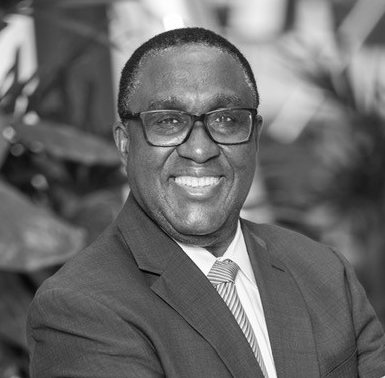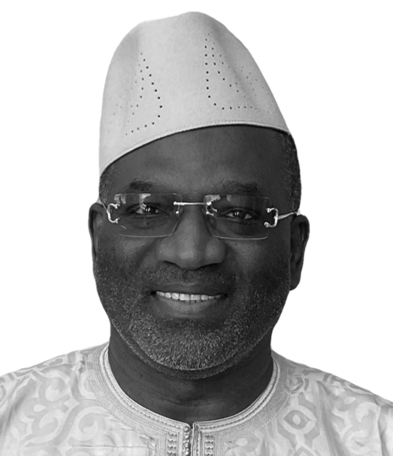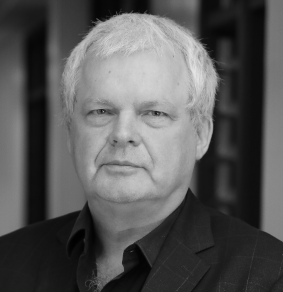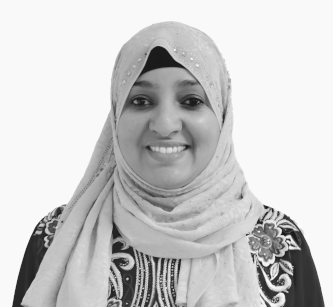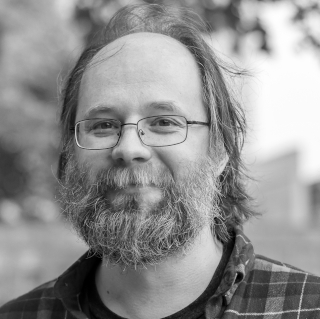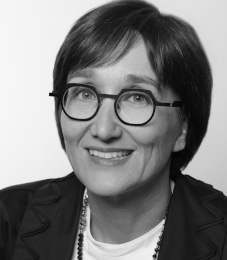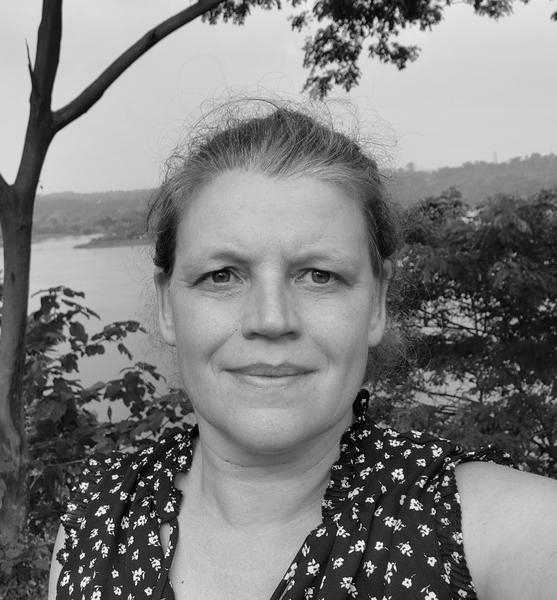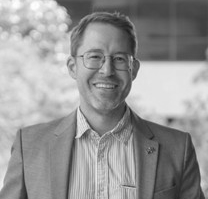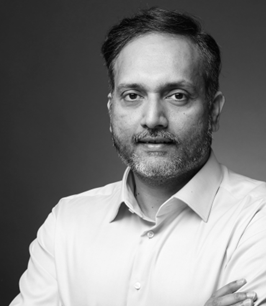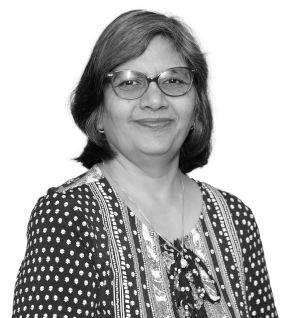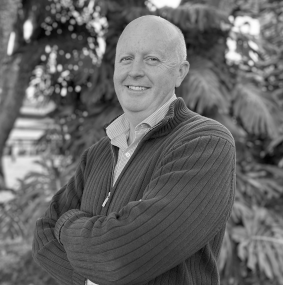Tropentag 2026:
Towards multi-functional agro-ecosystems
promoting climate-resilient futures
September 16 - 18, 2026
organised by
Universities of Kassel and Göttingen, Göttingen, Germany
Plenary session addresses
Opening session 10.09.2025
Director General of the International Institute of Tropical Agriculture (IITA), Nigeria and
Regional Director for Africa, CGIAR
Regional Director for Africa, CGIAR
Title of presentation: tbc
Dr Siméon Ehui, born in Côte d'Ivoire, is the Director General of the International Institute of Tropical Agriculture (IITA) and CGIAR’s Regional Director for Africa. He has more than 30 years of extensive experience in the fields of agriculture, food security, and sustainable development with a wide-ranging network of scientific research organizations within the CGIAR system, multilateral organizations, regional bodies, and national governments in Africa and other continents. During his career, he has held leadership positions, including Regional Director for Sustainable Development for West and Central Africa and Director of Agriculture at the World Bank, overseeing initiatives in Africa, the Middle East, Eastern Europe, and Central Asia.
Dr Ehui has played a crucial role in transformative initiatives, such as the launch of the Regional Hub for Fertilizer and Soil Health in West Africa and the Sahel based in IITA. He is a strong advocate for youth engagement and digital innovation projects across the African continent. As a visionary leader in agri-food systems, he promotes science-based solutions, strategic partnerships, and climate-smart agriculture to drive meaningful change.
Dr Ehui is a distinguished alumnus of Purdue University (USA) and serves on the Board of Directors of the Forum for Agricultural Research in Africa (FARA). He is also a member of the Scientific Advisory Board of the Purdue University Global Trade Analysis Project (GTAP). Dr Ehui is deeply committed to advancing food security in Africa through partnerships, and the development and implementation of agricultural policy reforms.
Dr Ehui has played a crucial role in transformative initiatives, such as the launch of the Regional Hub for Fertilizer and Soil Health in West Africa and the Sahel based in IITA. He is a strong advocate for youth engagement and digital innovation projects across the African continent. As a visionary leader in agri-food systems, he promotes science-based solutions, strategic partnerships, and climate-smart agriculture to drive meaningful change.
Dr Ehui is a distinguished alumnus of Purdue University (USA) and serves on the Board of Directors of the Forum for Agricultural Research in Africa (FARA). He is also a member of the Scientific Advisory Board of the Purdue University Global Trade Analysis Project (GTAP). Dr Ehui is deeply committed to advancing food security in Africa through partnerships, and the development and implementation of agricultural policy reforms.
Michigan State University (USA)
Title of presentation: Beyond the farm: Unlocking employment and livelihoods in Africa’s evolving food systems (abstract)
Lenis Saweda Liverpool-Tasie, Ph.D., is a globally respected development economist and MSU Foundation Professor at Michigan State University. Her research program focuses on transforming food systems, enhancing rural livelihoods, and strengthening evidence-based agricultural policy in low- and middle-income countries. With extensive experience leading high-impact, donor-funded projects on agricultural transformation, micro, small and medium scale enterprise (MSME) development, and policy capacity-building—she has become a trusted advisor to governments, international organizations, and academic networks. A U.S. presidential appointee to BIFAD, Dr. Liverpool-Tasie has authored over 100 peer-reviewed publications and received numerous awards for scholarly excellence and policy engagement. Her work is widely cited in top journals and featured in major development forums for its relevance to inclusive, climate-resilient, and nutrition-sensitive development.
University of São Paulo, School of Pharmaceutical Sciences, Brasil
Title of presentation:Exploring gut microbiome diversity and the nutrition transition in Brazil
(abstract)
Dr. Hoffmann is an Assistant Professor at the University of São Paulo, specializing in microbial ecology and gut microbiome research. With over 15 years of experience, he leads projects on how nutrition, agricultural policies, and socio-economic factors impact the gut microbiome in Brazil. His lab integrates molecular biology, sequencing, and bioinformatics, collaborating internationally to study microbiome variation and its health implications.
Closing session 12.09.2025
Executive Chairperson of AKADEMIYA2063
Title of presentation: Remote sensing and artificial intelligence application in agriculture (abstract)
Dr. Ousmane Badiane, a Distinguished Fellow of the African Association of Agricultural Economists, recipient of the Africa Food Prize in 2015, and a member of the World Academy of Sciences, serves as the Executive Chairperson of AKADEMIYA2063. He has over 30 years of experience as an academic and a practitioner in international development.
As the Director for Africa at the International Food Policy Research Institute (IFPRI), he was instrumental in developing and guiding the implementation of the Comprehensive Africa Agriculture Development Programme (CAADP).
As Lead Specialist for Food and Agricultural Policy at the World Bank, he served as advisor to the Vice President for Africa and originated projects with large-scale funding. Between research and development finance, Dr. Badiane taught Economics of Development in Africa at Johns Hopkins University’s School of Advanced International Studies for many years.
Dr. Badiane received a PhD in Agricultural Economics from the University of Kiel in Germany. He is also the recipient of a Doctorate Honoris Causa from the University of KwaZulu-Natal.
As the Director for Africa at the International Food Policy Research Institute (IFPRI), he was instrumental in developing and guiding the implementation of the Comprehensive Africa Agriculture Development Programme (CAADP).
As Lead Specialist for Food and Agricultural Policy at the World Bank, he served as advisor to the Vice President for Africa and originated projects with large-scale funding. Between research and development finance, Dr. Badiane taught Economics of Development in Africa at Johns Hopkins University’s School of Advanced International Studies for many years.
Dr. Badiane received a PhD in Agricultural Economics from the University of Kiel in Germany. He is also the recipient of a Doctorate Honoris Causa from the University of KwaZulu-Natal.
Deputy Director General for Research for Development of the International Institute of Tropical Agriculture (IITA), Kenya
Title of presentation: Planetary health and farmer’s livelihoods in Sub-Saharan Africa – first things first! (abstract)
While leading the development and implementation of the research portfolio at IITA, his own research focuses on the development and scaling of Integrated Soil Fertility Management options for smallholder farmers in key farming systems of sub-Saharan Africa. He recently lead the establishmenet of the Regional Hub for Fertilizer and Soil Health for West Africa and the Sahel, a key component of the Lome Roadmap for Fertilizer and Soil Health, adopted by West African Heads of State in 2023. He has published over 250 papers in peer-reviewed journals and (co-) supervised over 40 PhD students.
Invited speakers
International Centre of Insect Physiology and Ecology (icipe), Nairobi, Kenya
Title of presentation: Molecular tools for sustainable management of invasive/indigenous pests for food and nutritional security in Africa (abstract)
Molecular biologist, Senior Scientist and Head, Biosciences Platform of icipe working on native and invasive insect pests of crops for food security in Africa and beyond. She applies molecular biology techniques for insect pest identification and understanding variabilities in pest populations - essential for the development of sustainable IPM systems. In recognition of her contribution to research and development, she was awarded the 2019 TWAS-Abdool Karim Prize in Biological sciences.
Université catholique de Louvain (UCLouvain)
Title of presentation: Tacking stock of empirical and theoretical lessons from land system science for planetary health (abstract)
Patrick Meyfroidt holds a PhD in geography (2009) and a degree in sociology from Université catholique de Louvain (UCLouvain) in Belgium. Since 2016 he is Research Associate at the F.R.S-FNRS (the Belgian Research Funds) and Professor at UCLouvain.
His research focuses on how land use and more broadly land systems can contribute to sustainability.
His main research interests are land use transitions, i.e. non-linear land use dynamics at broad scale such as forest transitions and emergence of land use frontiers; linkages between globalization and land use including supply chain interventions to halt deforestation; theories of land system change; and social-ecological feedbacks.
His research focuses on how land use and more broadly land systems can contribute to sustainability.
His main research interests are land use transitions, i.e. non-linear land use dynamics at broad scale such as forest transitions and emergence of land use frontiers; linkages between globalization and land use including supply chain interventions to halt deforestation; theories of land system change; and social-ecological feedbacks.
International Food Policy Research Institute (IFPRI), Washington, United States
Title of presentation: Water use in agri-food systems: growing needs confronting waning supplies (abstract)
Claudia Ringler is Director, Natural Resources and Resilience at the International Food Policy Research Institute (IFPRI). A thought leader on water for food, she has close to 30 years of experience in conducting research on the intersection of water, food and ecosystem health, in partnership with collaborators from Africa, Asia and Latin America. In 2021, she was awarded honorary life memberships by both the International Water Resources Association and the International Association of Agricultural Economics for her lifelong contributions to the fields of water resources economics and agricultural economics, respectively. Dr. Ringler has a PhD in agricultural sciences (economics) from the Centre for Development Research, University of Bonn, and an MA in International Development Economics from Yale University.
The Alliance of Bioversity International & CIAT, Food Environment and Consumer Behaviour, Nairobi, Kenya
Title of presentation:tbc
Céline Termote is currently the regional lead for Africa for the Food Environment and Consumer Behavior research program at the Alliance of Bioversity International and CIAT. Based in Kenya, she is leading a team of about 20 researchers based in different African countries. She is holder of an MSc and PhD from Ghent University, Belgium and has over 15 years of experience with multidisciplinary research involving ethnobotany, agroecology, food systems and diet quality in Sub-Saharan Africa (Burkina Faso, DR Congo, Benin, Kenya, Ethiopia). Participatory community-based approaches are at the core of her research portfolio, which was probably influenced by her early experience as development worker, supporting 2 local organizations in Kabinda, Kasaï-Oriental, DR Congo.
International Rice Research Institute, Country Representative, Thailand
Ole is the climate change focal point of IRRI and leads the Thailand country office. His research focuses on greenhouse gas (GHG) emissions and mitigation technologies, particularly in Asia. Ole joined IRRI in 2010 and has since specialized in analyzing the GHG balance of cropping systems and evaluating mitigation strategies, such as Alternate Wetting and Drying (AWD) to reduce methane, incl. support to create enabling environments for adoption of new technologies and scaling. His broad expertise in agricultural climate change and multistakeholder engagement has strengthened IRRI’s climate change research initiatives across the region, fostering partnerships with national institutions in Vietnam, Thailand, Cambodia, Bangladesh, and the Philippines.
Leibniz Centre for Agricultural Landscape Research (ZALF), Müncheberg, Germany
I am a tenure track Senior Scientist in Working group “Multi-Scale Modelling and Forecasting” at Germany’s Leibniz Centre for Agricultural Landscape Research (ZALF), and currently working on developing AI driven, multiscale models to quantify climate change impact on crop yields and farm system analysis. Over 15 years at ZALF, the University of Bonn and the European Commission’s Joint Research Centre, I worked on integrating model simulation and indicator frameworks to assess cropping system sustainability at scales. I hold a PhD in Agricultural Science, an MBA in Agri business, and have led several research projects as a PI and Coordinator.
International Institute of Tropical Agriculture (IITA), Nairobi, Kenya
Title of presentation: Role of biotechnology in advancing African agriculture for planetary health (abstract)
Dr. Leena Tripathi is the Director of the Eastern Africa Hub, Director of Genetic Innovation, and Biotechnology Program Lead at International Institute of Tropical Agriculture (IITA), leading genetic improvement to strengthen agriculture in sub-Saharan Africa. With over 26 years in plant biotechnology, she champions translating science into practice. An elected Fellow of AAAS and AAS, she collaborates globally and serves on key advisory panels and editorial boards, advancing biotechnology for sustainable agriculture and global food security.
International Livestock Research Institute (ILRI), Tanzania
Title of presentation: Delivering an equitable transition to sustainable and low-emission livestock systems in low- and middle-income countries (abstract)
Anthony Whitbread is ILRI's Program Leader for the Livestock, Climate, Environment (LCE) program based in Dar es Salaam, Tanzania. Prior to this, he was the Research Program Leader for ICRISAT‘s Resilient Dryland Systems program based in India and Tanzania 2014-2022. His role in the CGIAR was preceded by a long research career in the crop-livestock systems of semi-arid Australia, SE Asia and Southern Africa with CSIRO Australia and as a Professor (W3) of Crop Production Systems in the Tropics at the Georg-August-Universität in Göttingen, Germany. Anthony’s expertise covers agronomy and soil science, forages, farm systems analysis, crop modelling, climate risk management, spatial analysis all focused on research for development in smallholder farming systems. He maintains high science credibility as a highly citated author, and as an educator, being the supervisor of several postdocs and PhD students through roles as Adjunct Professor at the University of Western Australia and continuing supervisory roles at the Georg-August-Universität in Göttingen, Germany. He holds a B.Rur Sc.,(Hons) and a PhD from the University of New England, Australia in Soil Science and Agronomy (1997).
